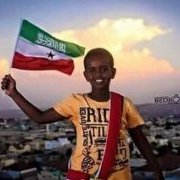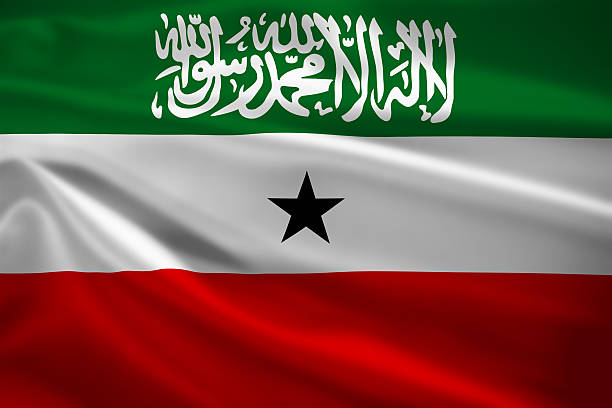-
Content Count
7,318 -
Joined
-
Last visited
-
Days Won
170
Content Type
Profiles
Forums
Calendar
Everything posted by Suldaanka
-
-
Cheeseman is happy as the foreign protected mayor of Mogadishu. In fact, as Waare eluded, not even all of Mogadishu. There are huge sections of Mogadishu that are off limits to Cheeseman.
-

Mukhtar Roobow being groomed to replace Sharif Sakiin
Suldaanka replied to Che -Guevara's topic in Politics
-
China and UAE accept Somaliland's passport.
-
Somaliland's Drought Preparedness Agency with their 160 hectare farm land. The food will be stored and used as a drought relief aid.
-
If it makes economic sense, go for it, let Borama have a well staffed and serviced airport. But if the economics do not add up, then that money should be better spent on a new Hospital, New MCH, New roads etc. At least the immediate impact on the local community will be felt right away. Just look at Garowe what bad economic decision making looks like.
-
Ethiopian airstrike kills 70 in Somalia: report Ethiopian Air Force fighter jets have carried out an airstrike against the Al-Qaeda-affiliated extremist group al-Shabaab in Somalia.
-
LOOL Cheeseman had the audacity to claim that he was the mastermind that brokered peace between Djibouti and Eritrea. akakak It reminds me of Abwaan Ibrahim Gadhleh from Oodweine, he wrote a poem showing the sad reality when Yamyam (apparently from Cheeseman's clan) claimed similar stature. Ibrahim Gadhleh said.. Abwaankii Dalkoo idil, Debadda uga baxee Africana u doodoow, deelaydu waa shaxe, sowdigan cidloda degay! Hore u soco, dib u soco, Dib u soco, hore u soco Halkii taagnow weeyan, Aleyle maxaa daal la kororsaday.
-
It makes sense to have a well serviced International Airport in Hargeisa with good connections to the world. And regional capitals to have local Airports with basic services. Just look at Garowe. I am not too sure how many millions they ploughed on that Airport. But was it really the best way to spend it? I am saying this because we know Garowe is struggling to entice Airlines to service it. An Airport without Air service is as useful as a train-line without trains.
-
Bisha Oktober ee 3 asbuuc ka hadheen, Ciidanka Qaranka Somaliland caruurtii ugu dhalatay Laascaanood waxay noqon doonaan 11 sano jir. Masha allah, waa gaashaan qaad... Duriyadda 10 jir ayu ku doob dilaacsadaan oo geela foof geeyaa.
-
I am guessing this is a different one. I second Alpha on this. The handover of the cement factory is questionable.
-
Now you know Gen. Gabre's valuable contributions. He would dictate how to go forward to all and they all nod their head in agreement. Without Gabre or Gabre's equivalent it is going to be loggerheads.
-
https://unsom.unmissions.org/sites/default/files/srsg_keating_briefing_to_the_security_council_13_september_2018.pdf My tour of duty comes to an end next week. On the day that I arrived in Mogadishu in January 2016, I was taken straight to the President’s office to discuss a threat by federal member states’ to suspend cooperation with the central government. When I left Mogadishu two days ago, the country faced a similar situation.
-
The latest World Bank report says Somalia (Excluding Somaliland) collected a total of 217 million. "The consolidated domestic revenue of the FGS and the FMS reached $217 million in 2017, equivalent to 3 percent of GDP (Figure A.2). The FGS accounted for 66 percent, Puntland 27 percent, Jubaland 6 percent, and South West and Galmudug together 0.8 percent of all revenue" Page 55. World Bank Report 2018 Somaliland's domestic revenue for 2017 was 276 million. For 2018, Somaliland budget is expected to expand at a staggering 82.8 million increase over 2017, for a total of 358 million. Somaliland's forcasted budget increase of 82.8 million for 2018 is almost equivelent to the combined 2017 budgets for all the FMS including Puntland, Jubbaland , SW, Hirshabelle which together was 95.5 million for 2017. Source: Somaliland:Study on SL Government Budgets from 2010 Up To 2017
-

Muuse Lokal: Axmedoow, meet me, see me, please
Suldaanka replied to Miskiin-Macruuf-Aqiyaar's topic in Politics
This was aired on Kenyan TV - the bun was intended to the full extent. -
Ceel Afweyn is a district in Somaliland that has recently been prone to conflict, mostly driven by disagreements over grazing land, scarce water resources, and disputes over political power and influence. Over the past two years, the district has experienced conflict between two local communities, leading to a rise in armed violence amid a humanitarian crisis caused by a severe drought. It has been the case that whenever conflict escalates into violence, the worst afflictions are borne by children, women, youth, and families. In this recent case for instance, militia violence and limited government and police presence caused the closure of many schools and in other ways disrupted community life. The feuding communities sue for peace The situation in Ceel Afweyn is anomalous in an otherwise stable Somaliland. After considering the loss of lives and the overall toll of the conflict, members of the two feuding communities decided to sue for peace. The Academy for Peace and Development (APD), supported by Interpeace, agreed to support a one-month mediation process initiated under the auspices of the Somaliland Government in mid-July 2018. A 66-member delegation, drawn from all the six regions of Somaliland, was formed to help convene the communities. The delegation devoted immense time and energy to the process, encouraging the two communities to disarm their respective militias and securing their commitment to dialogue. To complement the efforts of the delegation, 25 women from the two feuding communities organized themselves into an informal peace structure. The women began visiting homes in the villages surrounding the town of Ceel Afweyn, where they spread messages of peace, raised awareness of the ongoing mediation process, and updated villagers about the progress of the dialogue. On its part, APD facilitated focus group discussions to help map the needs and priorities of the communities beyond the immediate-term goal of halting the prolonged conflict. APD also held a workshop for over 50 youth from Ceel Afweyn and Hargeisa, to enhance the capacity of young people to actively participate in the conflict resolution and reconciliation process. Mediation efforts yield a peace agreement In the end, the two communities agreed to reconcile and announced a ‘Declaration of Peace’. Expectant residents, politicians and civil society representatives crowded the town, eagerly waiting to receive the final version of the peace agreement. The communities further formed a Coordination and Monitoring Committee to help settle their past grievances by bringing justice and overseeing the implementation of the peace agreement. Following the ‘Declaration of Peace’, APD took the opportunity to consult different groups within the society in Ceel Afweyn, including women’s groups, youth and elders. The consultations sought to establish the needs and priorities of the local communities as a first step in the incremental process towards long term peace and reconciliation. During the consultations, residents requested APD and Interpeace to provide support for the establishment of a youth committee and a women’s committee with representation from both communities, to support further awareness-raising activities about the peace agreement, and to facilitate connections with the business community as an important player in the peacebuilding process. These inputs and requests will be validated with the wider community before being formulated into concrete engagements by APD and Interpeace in support of the communities’ desire for lasting peace. Residents and authorities welcome the peace agreement It was apparent from the reaction of the residents of Ceel Afweyn that the reconciliation between the two communities was long overdue. The ‘Declaration of Peace’ has gained strong traction in the district, and the success of the Ceel Afweyn mediation process has attracted the attention of the Somaliland Government. The Minister of Interior, Mohamed Kahin, lauded APD for “their immense efforts during the reconciliatory talks” and for mobilizing the required support to make peace a reality for the estimated 100,000 residents of Ceel Afweyn. The success of this initial phase of the peacebuilding process in Ceel Afweyn inspires the hope of sustainable peace in the future. The pledge by the two rival communities to leave their past grievances behind and to instead look forward is an encouraging sign for APD and Interpeace to continue supporting the implementation of the peace agreement and other subsequent initiatives towards building trust and social reconciliation. The prospect of long-term peace is further bolstered by the fact that the reconciliation effort was initiated by the communities themselves, anchored in traditional Somali conflict resolution mechanisms, and with the full support of the government. “The mediation in Ceel Afweyn was Somaliland-led, locally owned and a culturally-rooted process, which enabled local actors to solve their problems,” said Mohammed Farah, Director of APD. The Academy for Peace and Development (APD) is Interpeace’s peacebuilding partner in Somaliland.
-
Probably the key note here is that, this man had a lot of influence in 2002-2005 peace process which lead to the final agreement between SPLA and Gov't of Sudan. This experience will come handy in understanding the up coming political settlement between Hargeisa and Mogadishu. Unlike Sudan, whcih was controlling and bombing South Sudan, Somaliland has full control of its territory and her position vis-a-vis Mogadishu is very strong.
-
https://www.un.org/sg/en/content/sg/personnel-appointments/2018-09-12/mr-nicholas-haysom-south-africa-special-representative Mr. Nicholas Haysom of South Africa - Special Representative for Somalia and Head of the United Nations Assistance Mission in Somalia (UNSOM) United Nations Secretary-General António Guterres today announced the appointment of Nicholas Haysom of South Africa as his Special Representative for Somalia and Head of the United Nations Assistance Mission in Somalia. He will succeed Michael Keating of the United Kingdom effective 1 October 2018, to whom the Secretary-General is grateful for his exemplary service and leadership of UNSOM. Mr. Haysom is a lawyer with a long international career with a focus on democratic governance, constitutional and electoral reforms, reconciliation and peace processes. He is currently the Special Envoy for Sudan and South Sudan, a position he has held since 2016. Prior to this, he served as the Special Representative of the Secretary-General for Afghanistan and Head of the United Nations Assistance Mission in Afghanistan (UNAMA) from 2014 to 2016, and as Deputy Special Representative of the Secretary-General for Afghanistan from 2012 to 2014. He was also Director for Political, Peacekeeping and Humanitarian Affairs in the Executive Office of the United Nations Secretary-General from 2007 to 2012, and Head of the Office of Constitutional Support for the United Nations Assistance Mission in Iraq from 2005 to 2007. In his earlier career, Mr. Haysom served in the Government of South Africa, including as Chief Legal and Constitutional Adviser in the Office of the President from 1994 to 1999. He was involved in the Burundi Peace Talks as Chair of the committee negotiating constitutional issues from 1999 to 2002 under the facilitation of the late former President Nelson Mandela. He was the principal adviser to the Mediator in the Sudanese Peace Process from 2002 to 2005. Mr. Haysom earned a degree in law from the Universities of Natal and Cape Town in South Africa. In 2012, he received an honorary doctorate from the University of Cape Town. Born in 1952, he is married and has five children.
-

What's the true population of the Somali nation?
Suldaanka replied to Che -Guevara's topic in Politics
Somalida iyo faankooda. If Somalis are 30 million, surely you will have mega cities of 2 million plus. At the moment only Mogadishu claims 2 million, Hargeisa claims 1 million. Djibouti is < 500k. All the other towns are mere 300k or less. So how can there be 30 million? I think Google is right, 15 - 18 million sounds plausible.




